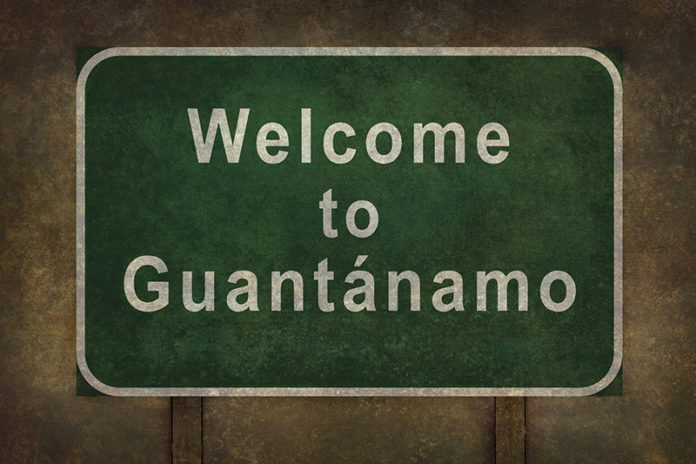The 9/11 attacks were the worst acts of terrorism in American history, with horrible results to thousands of innocent people. But the U.S. government’s response to it was a horror show of its own, with consequences that continue to reverberate.
In his ensuing war on terrorism, President George W. Bush lashed out in large, catastrophically destructive ways — particularly the invasion of Iraq, whose government had nothing to do with 9/11. His administration also lashed out in small but thoroughly vicious ways, notably in using torture against perceived enemies.
Past American presidents had respected international agreements, ratified by the U.S., renouncing such methods. The 1984 Convention Against Torture, signed by no less a conservative than Ronald Reagan, outlawed “any act by which severe pain or suffering, whether physical or mental, is intentionally inflicted on a person for such purposes as obtaining from him or a third person information or a confession.”
But Bush, under the tutelage of Vice President Dick Cheney, decided that anything forbidden by international law couldn’t be all bad. Cheney insisted that the administration’s “enhanced interrogation” tactics didn’t violate our treaty obligations. The suspected terrorists we captured, being unlawful combatants, “were not entitled to the normal kinds of courtesies,” he said. But the Supreme Court ruled that they are.
Cheney’s words were a marvel of cynical euphemism, bringing to mind George Orwell’s comment that “political speech and writing are largely the defense of the indefensible.” To say that detainees “were not entitled to the normal kinds of courtesies” suggests that they were deprived of Netflix and afternoon tea.
What the CIA and other agents of the U.S. government did, however, was not something that only prissy busybodies would find offensive. It was pure savagery, inflicted with gratuitous abandon and utter contempt for the decent opinion of mankind. And it didn’t even yield useful information.
You don’t have to take my word for it. That was the conclusion of seven members of an eight-person military jury empaneled to sentence a convicted terrorist who had been held by the CIA at several “black sites” before ending up at Guantanamo.
Majid Khan, they wrote in a letter, “was subjected to physical and psychological abuse well beyond approved enhanced interrogation techniques, instead being closer to torture performed by the most abusive regimes in modern history.”
The statement went on: “This abuse was of no practical value in terms of intelligence, or any other tangible benefit to U.S. interests. Instead, it is a stain on the moral fiber of America; the treatment of Mr. Khan in the hands of U.S. personnel should be a source of shame for the U.S. government.”
Along with Navy Capt. Scott B. Curtis, the jury foreman who wrote the letter, the signers “included a Marine lieutenant colonel, two Army lieutenant colonels, two Navy commanders and a Marine major,” according to The New York Times.
These veteran warriors were called to pass judgment on Khan for a gruesome crime: financing the deadly bombing of a hotel in Indonesia. But the details of what this terrorist endured were so grotesque that the seven officers urged clemency for him.
Those details have gotten scant attention. President Barack Obama banned such methods but declined to hold the CIA accountable. Neither American politicians of either party nor the news media have been willing to give them the attention they deserve. The general attitude of Americans has been to pretend atrocities like these never happened.
But they did. In a lengthy statement to the military court, Khan attested that he was repeatedly beaten, chained and hung by his wrists from a beam while naked and hooded. He was locked in a dark cell and deprived of sleep.
His head was banged against walls and held underwater. His tormenters jammed enemas and even garden hoses into his rectum. They shackled and duct-taped him into a chair so he couldn’t move and left him to soil himself.
Answering questions didn’t help him. “The more I cooperated, the more I was tortured,” Khan said.
Can his harrowing account be believed? “The agency declined to comment on the substance of Mr. Khan’s descriptions of the black sites, which prosecutors did not seek to rebut,” reported The Times. The jurors found his testimony more than credible.
The George W. Bush Presidential Library and Museum in Dallas displays many exhibits about the 43rd president. It would provide a far better educational experience if it included just one about Majid Khan.



































